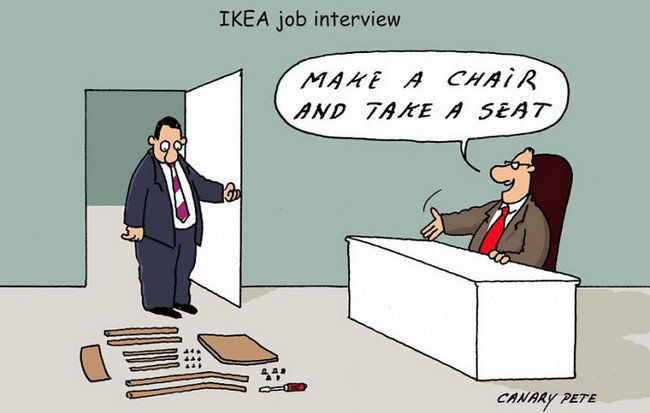Dance Like Nobody is Watching – Because They Probably Aren’t
- Matthew Smith
- Aug 2, 2021
- 4 min read
Picture this, you’re going about your daily life and out of the blue, a total stranger waves at you, “A bit friendly but nice nonetheless”, so you wave back… only to quickly realise they waved at the person behind you. Why would they ever wave at a stranger? Everyone in the world has seen me make this awful social blunder… my life as I know it is now over.
Or another time, perhaps, you go out in your brand-new shoes, “Everyone is going to complement these bad boys”, but you get to the end of the day, and nobody noticed. How could they not have noticed?
The anxiety and disappointment you feel from these scenarios and countless others like them are caused by the Spotlight Effect (Gilovich, Medvec and Savitsky, 2000), a feeling that you are being watched by everyone, as if you are the main character in a film and little of what you do goes unnoticed. In some ways this seems irrational, surely, we know that other people live their own lives and have little care for ours? In short, yes, we do, but only on a conscious level. Most of our decisions are based solely on ourselves or are framed in a way that puts us within the foreground, so it makes sense that subconsciously we think everyone is also thinking about us, because all we do is think about ourselves. Consequently, we believe that even our most subtle of change or social blunder will be centre stage in the story of that day and possibly many days to come. In reality, in the rush of our own lives, we pay little attention to the lives of others and so very few are paying much attention to you.
This theory has been put to the test on many occasions but perhaps the most famous was conducted by Gilovich, Medvec and Savitsky (2000). They split 109 Cornell University students into 15 targets, 64 observers and 30 controls and the targets were scheduled so that they would arrive unseen by the observers. Each target would enter a room already occupied by observers, but prior to entering the room they were asked to don a T-Shirt depicting the singer Barry Manilow, they would then be pulled back out of the room within a few moments. The targets were then asked how many of the participants in the room noticed that they were wearing a Barry Manilow T-Shirt, as theorised the Spotlight Effect resulted in a significant over-prediction of the number of people that noticed the shirt when compared with the number that actually noticed. Even more interestingly, the controls were shown a video tape of the experiment and asked to estimate the number of people that noticed the contents of the T-shirt and both control groups had a high level of accuracy in their prediction. This suggests that the spotlight effect is a very real phenomenon, but we only fall foul to it when the spotlight is on us and not when making predictions regarding the Spotlight Effect on others. This returns to the idea that in our rational mind we know very few people are paying attention to us, but subconsciously we feel the opposite.

(Gilovich, T. Savitsky, K. Medvec, V. 2000) Pg 213
Returning to anxiety, Vannucci, Flannery & Ohannessian (2017) looked into the impact of social media use on the prevalence of symptoms of anxiety and found that heightened social media use put those users at a greater risk of developing anxiety disorders. Although research on the link between social media and the spotlight effect is limited, I would surmise that our spotlight has stretched from the real world into the digital. In an attempt to match the airbrushed beauty of influencers, we scrutinise over our online posts, looking for minute details that can be finetuned. This returns to the feeling that, as we traverse daily life with our self as the main character, then subconsciously we believe that others are paying us a similar level of attention. Thus, as we examine our online posts, we tend to believe that others are doing the same once they’re posted online. I would also surmise that, should it be tested in future studies, we would see a similar result to Gilovich, Medvek and Savitsky (2000) in the domain of social media; this being that consciously we are aware that few people are paying us close attention, but subconsciously we believe that the spotlight is fixed on us. Ultimately, more research needs to be conducted on this subject to determine the extent of the link between the spotlight effect and social media.
This all sounds very gloomy, but the key message of this article came at the hands, or rather face, of Barry Manilow. Very few people are watching let alone judging you, so live your life that way and perhaps take breaks from Instagram and TikTok. Heed the words of Mark Twain and “…dance like nobody is watching…”, maybe to some Barry Manilow.
References
Gilovich, T. Savitsky, K. Medvec, V. 2000 ‘The Spotlight Effect in Social Judgement: An Egocentric Bias in Estimates of the Salience of One’s Own Actions and Appearance’, Journal of Personality and Social Psychology, Vol 78. N.o. 2, Pg 211-222
Vannucci, A. Flannery, K. Ohannessian, C. 2017 ‘Social Media Use and Anxiety in Emerging Adults’, Journal of Affective Disorders, Vol 207, Pg 163-166






Comments